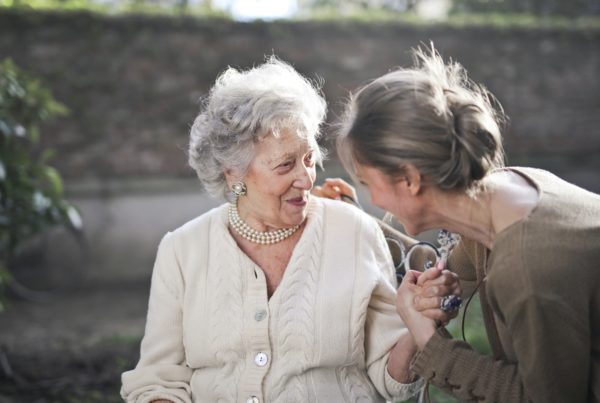Loneliness is something of an epidemic in modern Britain – and especially problematic for older people. Age UK figures indicate that more than a million older people can go for more than a month without speaking to a friend, neighbour or family member. We all lead busy lives and it’s easy to forget to drop in on, or call, someone who is at home and elderly. The resulting social isolation can be heartbreaking and depressing for older people but there are ways to combat this.
Loneliness in the elderly
Loneliness is not only an issue for older people who don’t have large networks of family or friends. More than 2 million people in England over the age of 75 live alone and even those who have families often still find that large portions of time are spent without company. Loneliness is not something that any human finds easy to cope with – it can result in lethargy and depression and the lack of interaction can also have an impact on mental sharpness and focus. The kind of social isolation that can cause loneliness can result from many situations, including disability, leaving work, the loss of a spouse, family moving away and simply not being physically as able to get out and about.
Home care makes life better
Many older people want to stay in the familiarity of their own homes but are well aware of the risk of social isolation in doing so. The opportunity to avoid being force to move into a larger community but remaining socially connected is something that is fairly unique to home care. If social isolation and loneliness are serious concerns for your relatives then home care could help to avoid this thanks to the way that it is structured.
- The benefits of staying put. Individuals remain at home, connected to existing communities and able to stay in touch with local friends and relatives.
- Individual interaction every day. Home care is provided on a one-to-one basis and individualised to the person who needs it. So, no single day passes without any contact with another human being who has the interests of the person being cared for at heart.
- A small, personal team. Home care is consistently provided by one or two professionals so there is the opportunity for a positive, genuine relationship to develop between carer and the person being cared for.
- Supportive and confidence boosting. When elderly people feel cared for and supported they are also more confident about their own role in society and importance to others. Isolated individuals may give up and feel unwanted but those who have home care can develop a new confidence to go out, interact and get involved.
- Essential assistance. It may be the little things that are causing social isolation – such as not feeling confident in getting dressed to go outside – or the big things, such as being physically unable to get somewhere due to weakness or disability. Home care can provide essential bridging support so that anyone can continue to live and thrive.
Loneliness is a serious problem for older people but there are some simple solutions. Live in Care can help to improve quality of life and avoid the social isolation that can be so damaging for so many.




